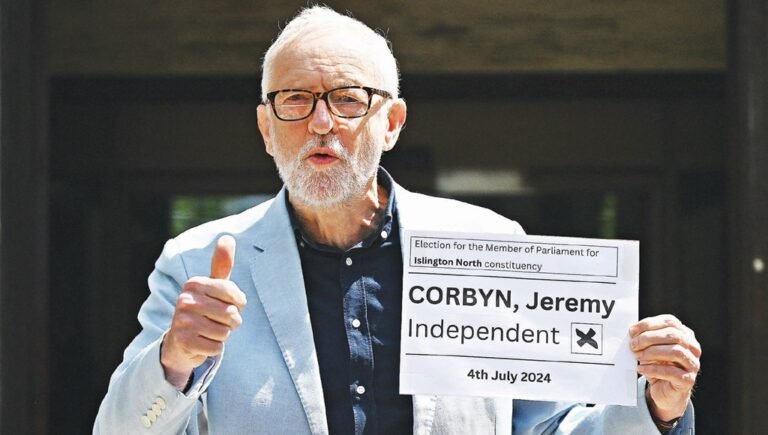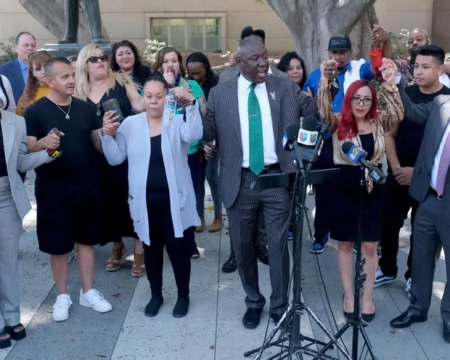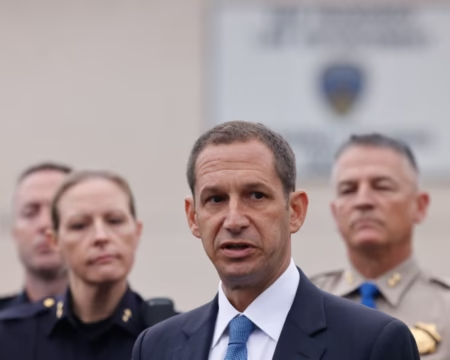Former Labour Party leader Jeremy Corbyn announced on Thursday that he is launching a new political party, marking a bold return to the national stage. Corbyn, who led Labour through two general elections and was later expelled from the party, said the time had come to build something fresh alongside fellow former Labour MP Zarah Sultana.
Although the group referred to their movement as “Your Party” during the initial announcement, they later said the name was still under discussion. In a joint statement, Corbyn and Sultana declared their intention to build a political force “rooted in our communities, trade unions and social movements.” They also called for “a mass redistribution of wealth and power,” along with strong positions on international issues, including an end to arms sales to Israel and support for a “free and independent Palestine.”
The move comes amid significant shifts in the UK’s political scene. Labour, under current leader and Prime Minister Keir Starmer, has moved towards the political centre since Corbyn stepped down. Starmer’s approach has attracted criticism from some on the left, especially over his cautious stance on recognising a Palestinian state. Four Labour MPs were recently suspended after opposing changes to welfare policies, and some political observers believe they may align with Corbyn’s new initiative.
Corbyn, now 76, resigned as Labour leader after the party suffered its worst defeat in decades during the 2019 general election. The Conservatives, then led by Boris Johnson, won a clear majority, while Labour struggled to connect with traditional working-class voters. The loss triggered a leadership change and a re-evaluation of the party’s direction.
In 2020, Corbyn was suspended by Labour after he rejected key findings from a human rights watchdog’s investigation into anti-Semitism during his leadership. The Equality and Human Rights Commission found Labour had violated equality laws under Corbyn’s leadership. He responded by saying the scale of the problem was “dramatically overstated for political reasons.” Following continued conflict with the party leadership, Corbyn was expelled and barred from standing as a Labour candidate.
Despite this, Corbyn successfully ran as an independent in the 2024 general election, retaining his Islington North seat in London. He has held the constituency since 1983. Sultana, elected as MP in 2019, was suspended from Labour last year after defying the party’s stance on child benefit caps. Her partnership with Corbyn signals a push to recapture support from left-leaning voters who feel Labour no longer reflects their values.
Whether this new party can make a significant impact remains uncertain. However, it adds to a growing trend of political fragmentation in the UK. For decades, British politics was dominated by Labour and the Conservatives, but that duopoly is now under pressure. The Liberal Democrats gained 72 seats in the most recent election, and Reform UK, led by Nigel Farage, won 14 percent of the vote and secured five seats—an unprecedented achievement for a far-right party in Britain.
Reform also made significant gains in local elections and currently leads several national opinion polls. While Reform is appealing to disaffected Conservative voters, Labour is facing pressure from the Greens and now potentially from Corbyn’s new group. Starmer’s critics argue that his leadership is alienating the party’s traditional base.
Political analyst Chris Hopkins of polling firm Savanta noted that a new populist left-wing party could present a real challenge. “I do think there is space for a left-wing populist party in the UK with a charismatic leader that could pose an enormous threat to Labour and the other parties,” he said, “but it’s going to take a lot to convince me that Jeremy Corbyn can be it.”
As the UK moves further into a multi-party era, Corbyn’s latest move could reshape the political landscape—if it gains momentum.







